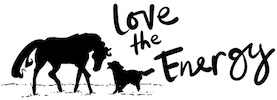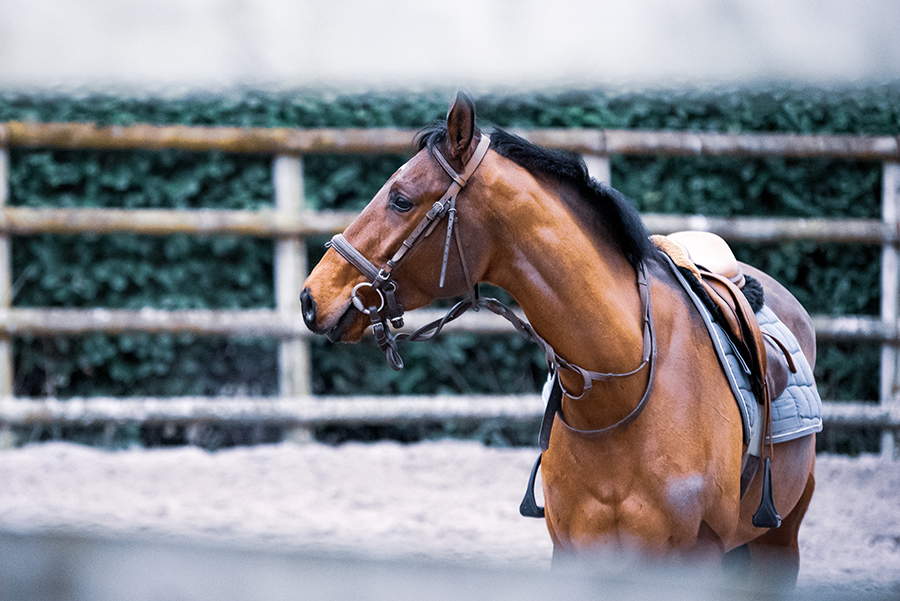Everyone thinks the decision to buy a horse of your very own is an exciting one, and it is. Finding your equine partner can mean years of riding together on the trails or in the ring, and if you ask me those sorts of memories are what life is all about. But if there’s one thing I’ve learned, it’s that buying a horse can utterly ruin your faith in humanity if you go into it with the wrong mindset. This is especially true if said horse will be ridden by a beginner rider (or your child).
As we embark upon another round of trying to find the right horse – after having made many mistakes the first time around – here are 7 things I’ve learned:
1. Don’t Expect Sellers to Be Honest About a Horse’s Suitability
You deserve a safe & sane mount to learn on. Yet beginner-friendly horses are hard to find and many folks will happily tell you a horse is what you’re looking for when they KNOW it is completely unsuitable. What’s more, they’ll sell you that horse for $10,000 or more.
If you’re new to horse shopping this may seem hard to believe. Surely if you tell sellers that you’re looking for a horse for a beginner rider they will tell you if something is unsuitable right? Wrong. I can’t tell you how many times I have been interested in a horse based upon what a seller was saying, only to be disappointed in the end. Not in the horses, they are just being themselves, but in the people who knowingly tried to sell me an animal that could have created a dangerous situation.
If you were expecting to do an honest exchange with someone when considering a horse, take a step back and imbue yourself with a near neurotic dose of skepticism. There are honest horse sellers out there, but they are not the norm and you shouldn’t take any information given to you at face value. Go see the horse 2-3 times or more. And even though many sellers won’t like it, ask for a trial or lease-to-own type situation. Most sellers will reject a trial – it is a risky proposition for them – but some will be amenable to a lease-to-own setup. In either case, you should ask.
Here’s a perfect example of why a trial is a good idea if you can get one: We recently looked at a Quarter Horse mare that was perfect at her barn and we thought might have been “the one.” But within a few days of having her on trial, she became skittish and started trying to bite whenever we groomed her. Not a good match for a child’s horse and let me tell you, we were glad we had done the trial.
What if the seller won’t do a trial?
This is going to be the case 9 out of 10 times. Usually, sellers are only willing to consider a trial if they have an existing relationship with your trainer and are familiar with the barn where your horse will be boarded. It is not always because they know something that is not being disclosed. It’s because sending a horse off to trial is risky for the seller. They won’t have control over how the horse is handled or what it experiences. Sellers are worried about having to “fix” problems potential buyers may create while they have a horse on trial and that is a legitimate concern.
If the seller says “no” to a trial or lease, then go visit the horse more than a few times. Go at different times of day, show up earlier than the seller expects, and don’t skip doing a PPE. Take someone objective with you each time you see the horse so they can help you assess all the information you have gathered without letting your emotions do the decision-making.
2. Expect to Spend at Least a Few Months Searching
Unless you have an insane amount of dumb luck, you are not going to find “the one” immediately. Your horse is not going to be the first, second, third, fourth+ horse that you look at. Go into your search with this expectation that you will see many horses and get your hopes up many times, only to discover during the PPE (Pre Purchase Exam) or trial period that this horse won’t work out for you.
This can be tough if a child is involved with the search process so have a frank conversation with them about wanting to find the right horse for your family, not just any horse. Encourage them to approach each horse with a curiosity mindset: ask questions about the horse, observe how it behaves, and come up with a score from 1-10 of how much they like the horse. With my own son, I’ve found that “ranking” each horse as a whole helps him take a step back and look at each animal less with his emotions (and more with his mind).
3. Know What Your Non-Negotiables Are
When evaluating a horse go into it knowing what your non-negotiables are. For me, they are good ground manners, a solid W/T/C (Walk/Trot/Canter), a calm demeanor, experience with beginners + child riders, and overall good health. (I will share my horse “checklist” in another post soon).
While I’m willing to do some maintenance for older horses along the lines of Legend/Adequan injections (these help with joints) a horse is immediately ruled out if it has any of the following: eye/lung/heart issues, a history of Lyme, a history of bolting/bucking/spooking/biting, lameness issues, or has navicular hooves. Amazingly, this has ruled out 99% of the horses we have seen during our horse search so far, all of which have been pitched as “great beginner horses.”
4. Try to Stay Local – And Use Your Network
If you know local horse people, use your network! If someone suggests a horse to you, discretely ask your contacts whether they know this horse and think it would be a suitable match given your current needs and riding abilities.
There are nuances to using your local network, so be aware of the pluses & minuses. On the minus side, for example, a few times now a horse has been suggested to me that I discovered was completely unsuitable. This was disappointing because the horses came recommended by a “friend of a friend” and the naive part of me had hoped sellers within my local horse community would deal straightly with me. But on the plus side, the same community that had put me in touch with that seller let me discover that the horse either had medical issues or was too sensitive/forward for a beginner rider.
(Do be discreet when asking around about a horse though. You don’t want to be gossiping, but rather just finding out information about a horse you are considering. So for example, when I discovered one horse was not appropriate I did not tell the seller “So and so told me….” Instead, I said something along the lines of, “Your horse looks so lovely but I think he might be more horse than we are looking for right now.”)
5. Don’t Horse Hunt Alone, Even If You Have Experience With Horses
It helps to have a second (or third) pair of eyes when looking at a horse. This starts at the very early stages of checking a horse out, when you request current photos and videos from the seller before an in-person visit. Send those photos/videos to your trainer or a knowledgeable friend to evaluate the horse based upon sight for any lameness or noticeable personality issues. We ruled out several horses this way.
If the horse passes the initial photos/video test, ask your trainer or friend to go with you when meeting the horse. Watch the current owner ride the horse first to see how it moves at the walk/trot/canter. Then ask your trainer to help you evaluate the horse’s gaits and determine whether they would be easy for you or your child to learn on. This is especially helpful if you yourself are a beginner rider (or don’t ride at all). A smooth trot and canter will be much easier to learn on than a bouncy/big trot or an unbalanced canter.
6. Don’t Settle
It is tempting to overlook your non-negotiables and just settle for a horse that has most of what you want. Horse hunting takes a lot of time, is emotionally draining, and can be expensive if you are traveling or doing multiple PPEs. But consider the long-term cost of a horse with known issues vs. the immediate gratification of finally buying a horse.
Let’s say, for example, you are contemplating buying a horse that comes back unsound/lame on the PPE but has a good personality overall. Are you willing to take the chance that that horse may be completely unrideable within a year or two? (And therefore near impossible to sell or find a new home for.) While it is true that a perfectly healthy horse can go lame, why start off a new relationship with that handicap when more patience may turn up an equally personable horse that does not have soundness issues?
7. Consider Leasing
I plan to write a longer post about the pros/cons of leasing vs. buying a horse, but to mention it briefly, there is much to recommend it. While it’s true that the horse won’t be truly yours if you lease and could be sold when your lease is up, leasing a horse also allows you to ride a suitable horse for your skillset right now.
Right now we need a horse that my son & I can safely learn how to trot & canter on and that is not too big for my son’s 8-year-old height. But next year I expect he will have learned how to trot/canter and might be interested in exploring more advanced skills. If a leased horse can’t accommodate those interests, we can choose to lease a different horse. Likewise, if my son becomes too tall for the leased horse, we can switch to a bigger mount. True we still have to search for the right horse to lease, but the hassle of selling a horse before finding a new mount is no longer an obstacle. Also riding schools are often much more open to leasing a good lesson horse vs. selling one.
Ultimately I suspect the more difficult part of leasing a horse (if we find a good one) will be my son’s emotional attachment to it and the hardship of saying goodbye should the lease end at some point. But no pet lasts forever, and horses are so very expensive, that leasing is definitely an option to consider.

